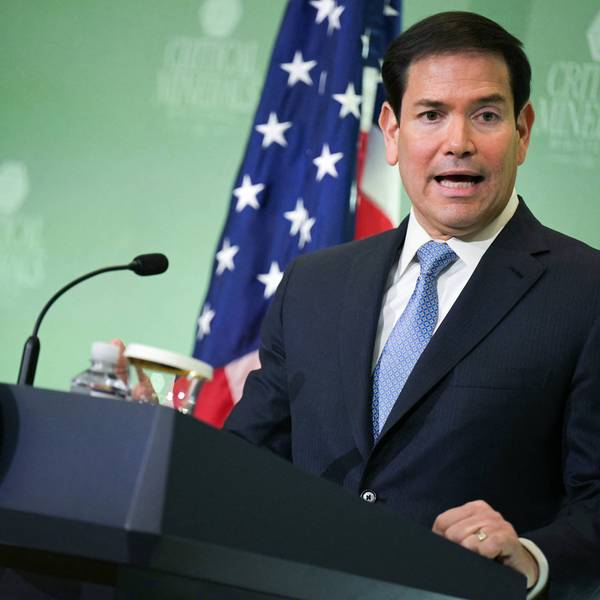As President Vladimir Putin and the Russian Federation Council push closer towards annexation of Crimea and the U.S. position hardens after its warnings were ignored over a referendum vote on Crimean independence on Sunday, will the growing diplomatic chasm between Washington and Moscow begin to unravel ongoing talks over Iran's civilian nuclear program?
That central question comes as the latest round of talks between Iran and the so-called P5+1 nations begin in Vienna on Tuesday amid much trepidation about the way the ongoing political crisis in Ukraine--and the ensuing fallout between world powers--will have on this international issue and others. A temporary agreement reached among the nations involved took hold late last year and has set a timeframe for a more permanent agreement which negotiators hope to have in place by summer.
According to Reuters:
So far, diplomats say, there is little sign that the worst East-West confrontation since the Cold War will undermine the quest for a deal to end the standoff over Iran's atomic activity and avert the threat of a Middle East war.
But unity among the powers on Iran may be tested in the meeting of their chief negotiators on the issue in the Austrian capital Vienna, with the four Western states and Russia at loggerheads over the future of Ukraine.
Russia and the West have in the past differed on how best to deal with Iran, with Moscow generally enjoying warmer ties with the Islamic Republic and suggesting Western fears about any nuclear military aims by Tehran are overblown.
But Western diplomats said there had been no apparent spillover from the Ukraine situation on expert level talks between Iran and the powers - the United States, France, Germany, Britain, China and Russia - held two weeks ago.
Iran Foreign Minister Mohammad Javad Zarif took to his Twitter account ahead of the talks to voice Iran's position, saying, "Important and tough discussions ahead today. We have held our end of the bargain. Time for our counterparts to keep theirs."
As the New York Times reports, international agencies confirm that the Iranians have so far met their commitments, but that hasn't kept Israeli officials from saber-rattling over their continued claims that the Iranians have nuclear weapons ambitions:
The International Atomic Energy Agency, the United Nations monitor of the Nuclear Nonproliferation Treaty, verified earlier this month that Iran was complying with the temporary agreement.
The talks are being watched closely in Israel, which has not excluded a military strike against Iran's nuclear facilities. In the newspaper Haaretz on Tuesday, Israel's defense minister, Moshe Yaalon, was quoted as saying that the United States "should lead the campaign against Iran" but instead was negotiating with Tehran.
"Therefore, on this matter, we have to behave as though we have nobody to look out for us but ourselves," he said in a remark that some analysts said did not necessarily amount to a call for a military strike.
_________________________________



